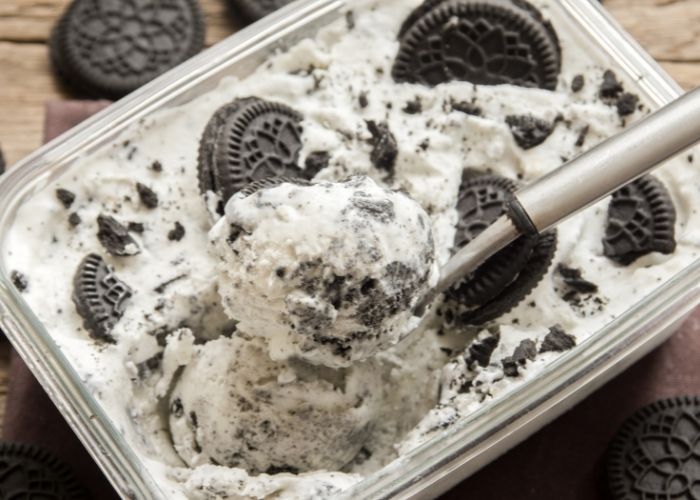MADRID – More than 40 types of ice cream in Spain may contain traces of the carcinogenic substance ethylene oxide (ETO). According to Spanish consumers’ association Facua, the list includes as many as 46 varieties made by Froneri. The company produces ice cream for Nestlé, Milka, Toblerone, Nuii, Oreo, Princesa, La Lechera and Smarties.
Facua has called on Nestlé and Froneri ‘to act transparently and disclose the full list of products involved’. However, according to the organisation, Mars is the only manufacturer so far to be transparent. And as such have published a list of products to be withdrawn from the market in Spain.
Facua warned on Monday the products in question may be found in catering outlets and food shops. `If they were bought in hypermarkets, they could have been purchased before they were withdrawn by the distributor’. Those who have these ice cream products in their homes can return them to the companies and be refunded.
Product recall
Producer Froneri stated on its website it was ‘recalling batches of ice cream where the ingredient with traces of ETO was found. ‘After we received the warning about the contaminated stabiliser supplied by one of our suppliers, we took proactive measures,’ Froneri said. The company says it is ‘working with the health authorities’ to ensure ‘a swift recall of all affected batches’.
Very specific batches
In a subsequent statement, picked up by Spanish news site Europa Press, Froneri clarified ‘these are very specific batches. There is no single product category that is affected in its entirety. Likewise, not all products produced under the same batch number are automatically contaminated. Therefore, a batch may contain several products, some of which have used the affected stabiliser and some which have not’.
Froneri calls quantity ‘minimal’
The production company also points out the amount of the affected ingredient used is ‘negligible in the final product’. And clarifies that even in the case of consumption of a contaminated product, based on external and in-house analyses, it is very unlikely to pose a risk to consumer health.’
However, Froneri warns there could be a risk to health in the event of direct contact with the substance or if consumed in large quantities. An official list of affected products has not yet been published on the company’s website. Furthermore, consumers can use a search engine to enter the first six digits of the batch and find out if they are affected.
Aesan is concerned
The Spanish food safety and nutrition agency Aesan, part of the Ministry of Consumer Affairs, expressed concern about the traces of ethylene oxide found in foodstuffs. A food alert has been in force across the European Union since late June.
Aesan announced ‘ethylene oxide has been found in some batches of the additive E410 used for the manufacture of foodstuffs’. However, they added that the levels of this substance in foodstuffs are ‘very low and below the legal limit of 0.02 mg/kg’.
What is ethylene oxide?
ETO, according to Aesan, is ‘potentially mutagenic (a substance that damages DNA and can cause hereditary changes), carcinogenic and toxic. ETO can have harmful effects on the body, which is precisely why its use has been banned in the EU for over 20 years.
Traces of this substance could be found in raw materials of plant origin intended for human consumption . It can also be used as ingredients in the manufacture of various foodstuffs. Or, in turn, as raw materials for the manufacture of such ingredients.


